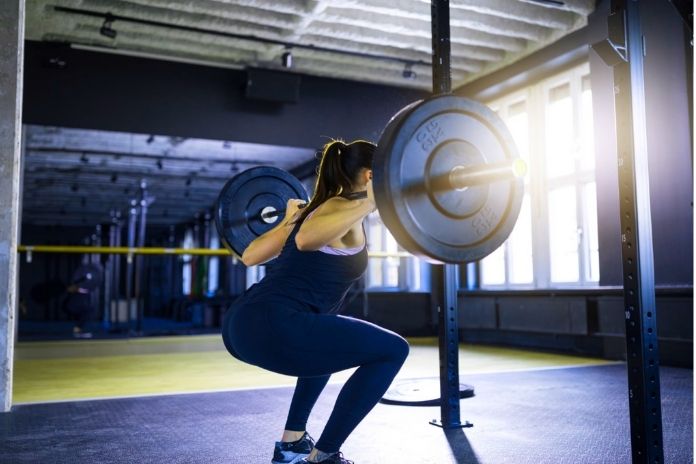Exercising regularly and eating right are the keys to losing weight successfully. However, if nothing happens on the scales, it can be frustrating. Two experts explain what’s behind it.
You make regular efforts to get through your training and eat a balanced diet – but the number on your scale stays the same.
Perhaps you have already calmed your conscience by saying that weight gain despite exercise can only be due to the newly gained muscle mass.
Personal trainer Gabbi Berkow and sports physiologist Rondel King explain to the online magazine’ Popsugar’ what is hidden behind this myth and how you can tell whether you are gaining muscle or fat mass.
Fat Builds Up More Easily Than Muscle
To break down enough fat, a calorie deficit is recommended for those who want to lose weight. Those who burn more calories than they eat will automatically lose weight and lose unwanted fat.
Regardless of whether it is proteins, carbohydrates, or fats: the body automatically stores everything as fat eaten in excess.
On the other hand, Muscles only need two things to grow: a lot of time and hard work.
Gabbi explains, “You have to gradually overload your muscles by lifting weights and challenging yourself over time. After each workout, your muscles build up more fibers so that they can cope better with the stress of the next workout. ”
Diet Is The Key To Building Muscle
Muscles, as an essential building block, need a lot of protein to withstand the stresses placed on the body during the period of muscle building.
Muscles Are made of protein, so you should aim for around two grams of protein per kilo of body weight daily.
Muscle building uses up a lot of calories, which is why it is not beneficial to go through a calorie deficit during this time; muscles build better in excess calories.
But be careful: While it is possible to build muscle without gaining fat, this process requires strict attention to calories and protein.
This Is The Best Way To Measure Your Body Fat Percentage
Everyone strives for a different goal for their self-optimization – you decide too.
Regardless of whether you want to build muscle, lose fat, gain weight or become more defined, you will get the best overview of your progress with precise measurements.
They show which parts of your body are water, fat, or muscle – such a measurement is often carried out when starting in the gym to set realistic goals.
A simple way to determine your fat percentage is with our body fat calculator.
Body Composition Counts – Not Weight
Don’t let the number on the scales unsettle you, and concentrate on what parts of your body are made up of. Chances are you’ve lost fat and build muscle.
After all, one kilogram of muscle weighs the same as one kilogram of fat.
Muscle is denser than fat and contains more water, protein, and carbohydrates but takes up less space than the same amount of fat.
The reason why you look slimmer, but your total weight on the scales doesn’t necessarily change.
The Difference Can Be Seen From The Outside
Outwardly, it should be easy for you to tell whether you have gained muscle or fat mass.
When you have built up muscles, you will be able to see and feel them more clearly.
If you’ve just put on fat, you’ll be able to see that too, as your body may look less defined and feel more soft or even limp.
Maybe capture your results with photos, which is the best way to see your progress and stay motivated.
ALSO READ- OATMEAL: THIS IS THE PERFECT PROTEIN PORRIDGE FOR MORE MUSCLES

